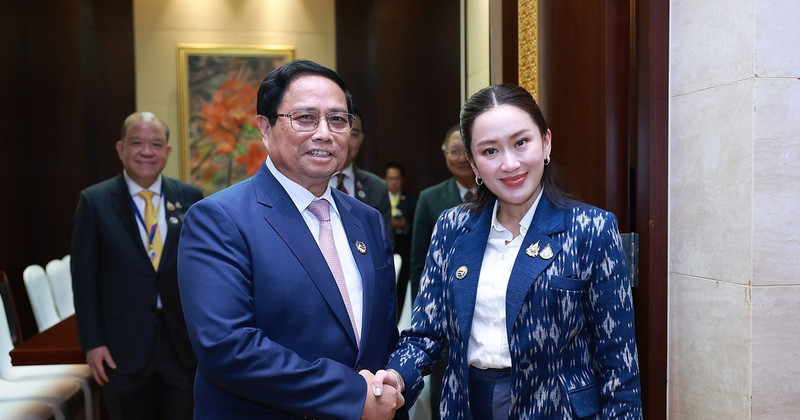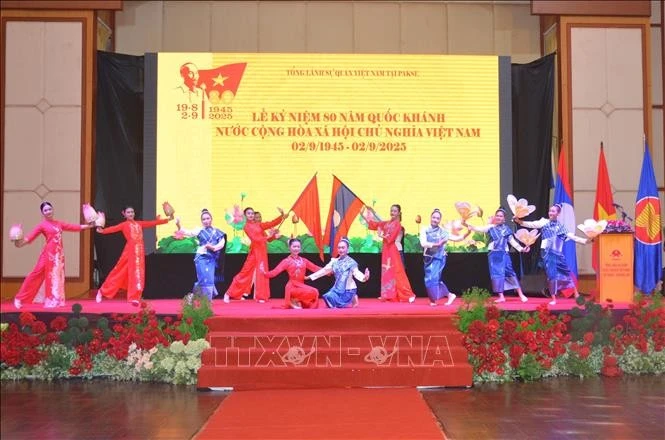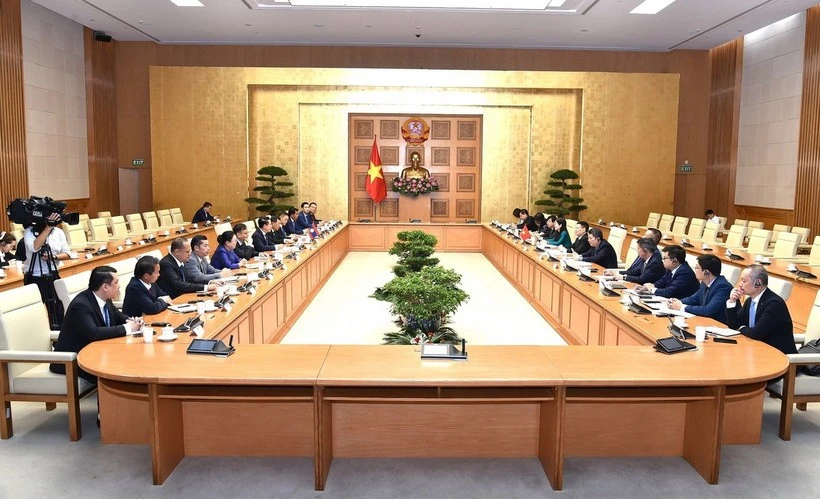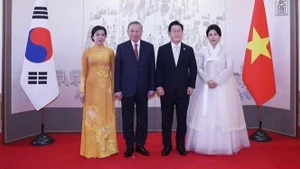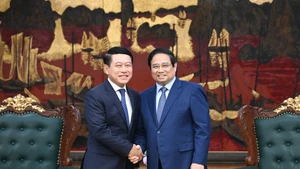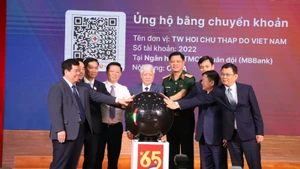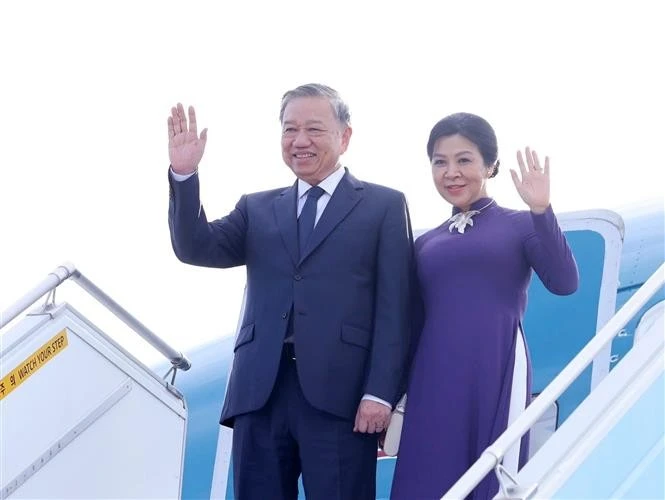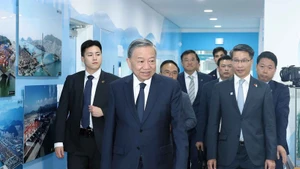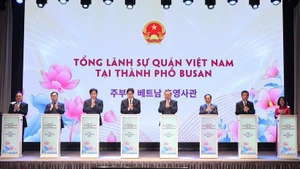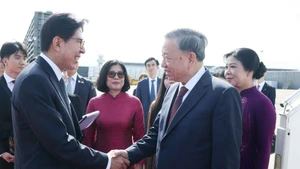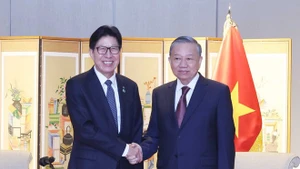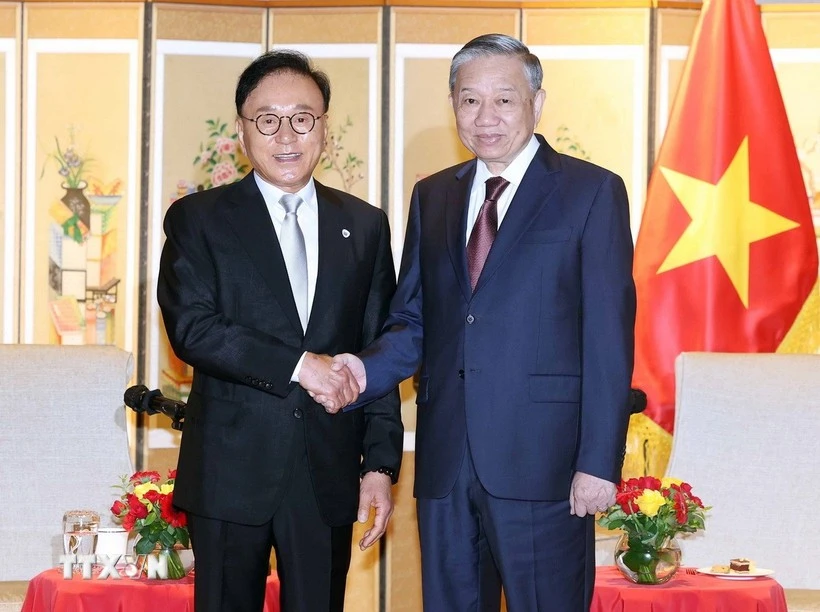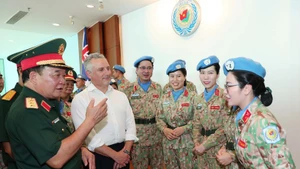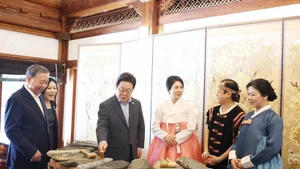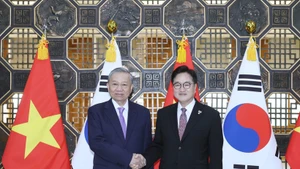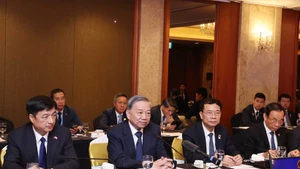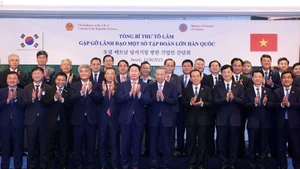The two leaders noted with pleasure the fine development of the Vietnam-Thailand Enhanced Strategic Partnership and agreed to increase all-level meetings and exchanges.
They agreed to instruct relevant agencies to effectively implement bilateral cooperation mechanisms as well as the action programme to deploy the Vietnam-Thailand Enhanced Strategic Partnership for the 2022 – 2027 period across spheres.
The two sides consented to soon raise bilateral trade to 25 billion USD in a balanced manner by reducing trade barriers, facilitating market access for goods, removing obstacles, and strengthening trade and investment ties.
The two leaders highlighted the importance of implementing the “Three Connections” Strategy, and linking supply chains and strategic areas such as transport, digital economy, green economy, and energy transition.
They also agreed to quickly establish a joint working group to develop the content and specific plan for materialising this strategy.
The two leaders concurred to expand cooperation in potential spheres like economy, tourism, transport, multimodal connectivity, and locality-to-locality cooperation.
The two sides agreed coordinate with relevant nations to pilot the “Six Countries, One Destination” tourism cooperation initiative.
PM Chinh stressed the importance of strengthening coordination and information exchange in the fight against terrorist and reactionary organisations, ensuring that no individual or organisation is allowed to use one country's territory to resist the other.
The Thai PM affirmed that she will arrange an official visit to Vietnam soon and co-chair the 4th Vietnam-Thailand joint cabinet meeting.
Vietnam is one of Thailand's key partners in Southeast Asia, PM Paetongtarn noted, expressing her desire to quickly elevate the relationship to a new height.
The two leaders agreed on the need to strengthen cooperation, maintain solidarity and unity within the Association of Southeast Asian Nations (ASEAN), and promote its centrality in international and regional issues, including the sustainable management and use of the Mekong River's water resources.
They also emphasised the significance of ensuring peace, stability, security, safety, and freedom of navigation and overflight in the East Sea/South China Sea based on international law, including the 1982 United Nations Convention on the Law of the Sea (UNCLOS), fully and effectively implementing the Declaration on the Conduct of Parties in East Sea (DOC), and soon finalising a practical and effective Code of Conduct in the East Sea (COC).
